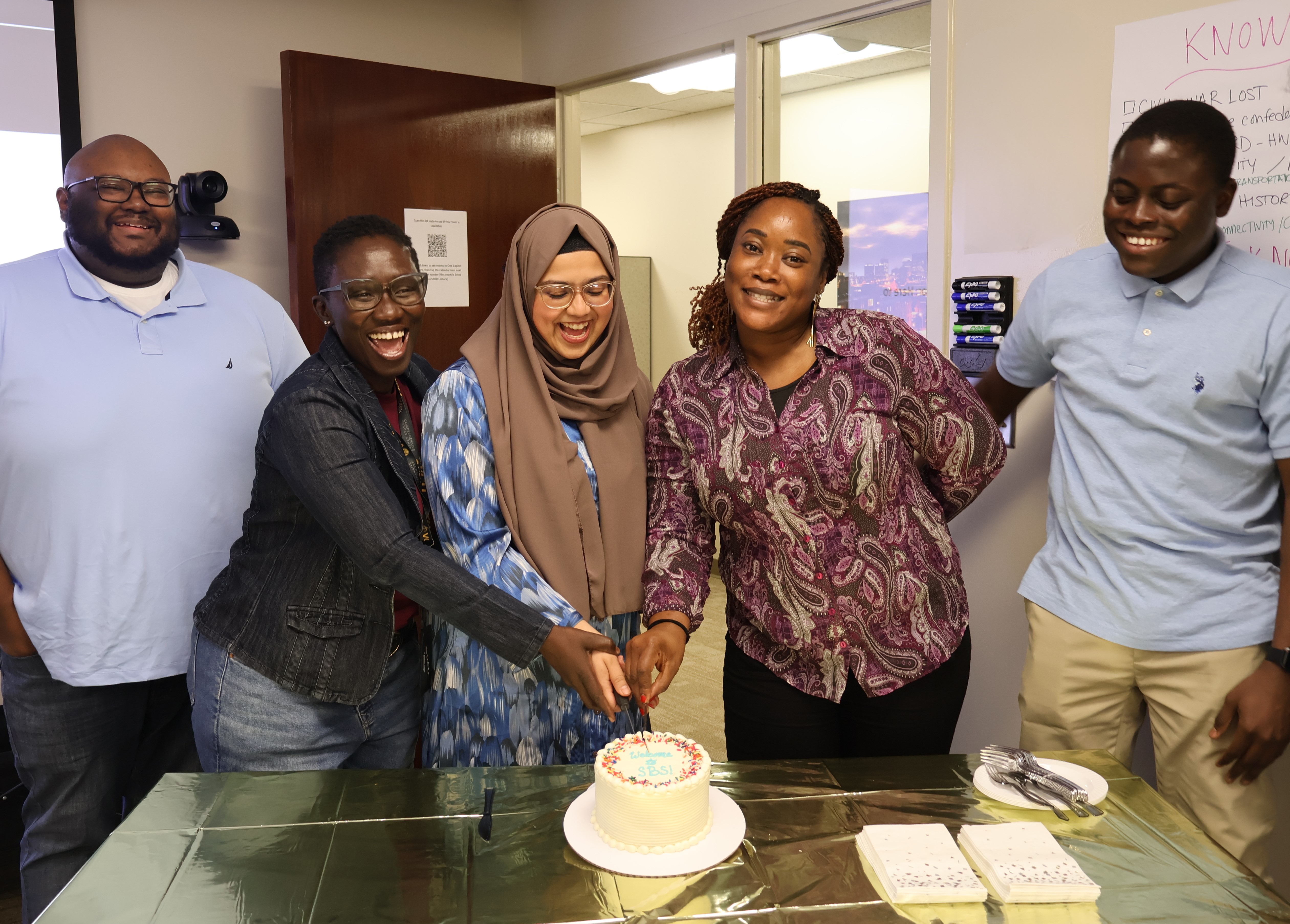
Social and Behavioral Sciences Ph.D.
The PhD program in Social and Behavioral Sciences at the Virginia Commonwealth University School of Public Health offers more than advanced academic preparation—it’s a space for shaping approaches that respond to pressing challenges in health and well-being. Grounded in research and guided by real-world insight, the program supports scholars in cultivating work that reflects community knowledge, fosters collective engagement, and contributes to lasting improvements across public health systems.
As part of their education, all SBS doctoral scholars will develop competencies in each of the following areas:
- Critically evaluate social drivers of health and develop strategies for improving health and well-being for all
- Recommend and apply community-engaged principles in research design
- Propose and justify analytical approaches for answering public health research questions using qualitative, quantitative, and mixed methods
- Construct and critique theory-driven approaches for developing, implementing, and evaluating health promotion programs
- Design and produce an independent research project involving primary data collection
- Demonstrate advanced oral and written communication skills
Leadership Team
Dina T. Garcia, Ph.D., M.P.H., M.Ed.
Director of the SBS Doctoral Program


Nerice Lochansky Luu, M.A.
Education Administrator


Faculty Mentors
We emphasize holistic, personalized mentorship, and experiential research training under the guidance of one of the following faculty mentors:
Richard F. Brown, Ph.D.
Kellie E. Carlyle, Ph.D., M.P.H., M.Ed.
Dina T. Garcia, Ph.D., M.P.H., M.Ed.
Sun Jung “Sunny” Kim, Ph.D., M.S., M.A.
Jessica G. LaRose, Ph.D.
Alexander R. Lucas, Ph.D., M.S.
Maria D. Thomson, Ph.D., M.Sc.
Katherine Y. Tossas, Ph.D., M.S.
Curriculum at a Glance
Students complete a minimum of 54 post-master's credit hours in subject areas such as the following:
- Research methods in social and behavioral sciences
- Theoretical foundations of social and behavioral sciences
- Health disparities
- Community-based participatory research
- Health communication
- Intervention development and implementation
- Program evaluation
Learn more about the program’s curriculum and other degree requirements in the VCU Bulletin.
Impact Through Cross-Disciplinary Collaboration
Our doctoral program emphasizes a training approach that blends cross-disciplinary learning with hands-on collaboration. Students engage with a curriculum that encourages critical inquiry into how behavioral, biological, structural, and social drivers shape public health, while developing research practices rooted in community engagement. This integrated training prepares scholars to work across fields and in partnership with both organizations and local communities—building the skills to carry out research that is rigorous, responsive, and aligned with the realities of public health practice.
A Collaborative and Supportive Learning Environment
All first-year students participate in our Cohort Success Program, a year-long initiative designed to support their transition into doctoral study and help them situate their research within the social, historical, and geographic context of the Greater Richmond area. Monthly sessions and activities encourage reflection on wellness, scholarly identity, and leadership, while fostering connection across the cohort. Scholars are further supported through our Peer Mentorship Program, which cultivates belonging and nurtures the development of scholarly voice through cross-cohort relationships. Together, these structures create a learning environment rooted in care, collaboration, and shared accountability.
Life in Richmond
Urban life with a small-town feel
We encourage our students and researchers to maintain a healthy work-life balance, and Richmond is a wonderful place to engage in that well-rounded lifestyle. As the capital of Virginia since 1779, Richmond attracts students, faculty and staff from around the globe. The city’s location affords easy day trips to destinations like Washington, DC, Virginia Beach, Colonial Williamsburg and the Blue Ridge Mountains, among others.
As a mid-sized city with a metropolitan population of 1.3 million, Richmond provides stimulating activities while maintaining its intimate feel and unique vibe. Vibrant neighborhoods offer distinct, diverse experiences, with no shortage of art galleries, museums, music venues, restaurants, breweries and parks. For the outdoor enthusiast, you can’t beat the offerings in the city’s riverfront parks and urban wilderness areas such as white-water rafting, hiking, mountain biking and festivals.
Admission Requirements
Applicants for this doctoral program must have a master’s degree in a related discipline from an accredited program and a minimum graduate GPA of 3.0 to be considered for admission.
Please see the VCU Bulletin for more information about graduate admissions.
The Social and Behavioral Sciences Program admits students in the fall each year.
Please submit your application through the Schools of Public Health Application Service (SOPHAS).
Applicants must supply the following:
- Academic transcripts from all levels of study. Applicants who hold an international degree must submit their qualifications to World Education Services (WES) for evaluation. The degree must be equivalent to a U.S. master's degree as determined by WES.
- Three letters of recommendation from instructors or professional references in your field of study
- A personal statement addressing your reasons for pursuing graduate education at VCU, describing your background, passion for public health, research interests and other information you think the admissions committee might find relevant that isn’t asked for elsewhere in the application. This is also an opportunity to identify the faculty member(s) with whom you’d like to work.
International applicants must also provide evidence of proficiency in the English language prior to admission or full-time enrollment at VCU. Accepted tests include TOEFL, IELTS, PTE or Duolingo. The university minimum TOEFL score requirement is 550 (paper-based) or 80 (internet-based). The university minimum IELTS score requirement is 6.5. The PTE is also accepted with a minimum score of 65. Duolingo score minimum is 120.
GRE scores are not a required component for the PhD application.
A supplemental application is required upon completion of the application in SOPHAS. Fee waivers are available for those that qualify. There are no fee waivers available for the application in SOPHAS.
Please be cognizant of application deadlines and apply early if possible. SOPHAS requires four to six weeks to verify an application. While we only require that the application be submitted by the deadline, it is encouraged that you apply early enough for all of your application materials (transcripts and credentialing evaluations, letters of recommendation, test scores, etc.) to be complete and included in your application.
The department currently provides support for all full-time Ph.D. students in the form of a graduate research assistantship for up to four years. This includes both a stipend and tuition support, and it’s contingent upon availability of funds and student performance.
Graduate research assistantships require full-time enrollment (9-15 credits in the fall and spring and three credits in the summer) and up to 20 hours per week of work for a designated departmental faculty member.
More information about financial assistance is available at finaid.vcu.edu.
Contact Us
For more information about the Social and Behavioral Science Ph.D. program, please contact:
Nerice Lochansky Luu
Education Administrator
nlochansky@vcu.edu